Share On Social!
Abstract
Many Latino families suffer a big lack of access to support for economic and educational success, and quality healthcare. This makes it harder for Latino kids to achieve academically, socially, and physically.
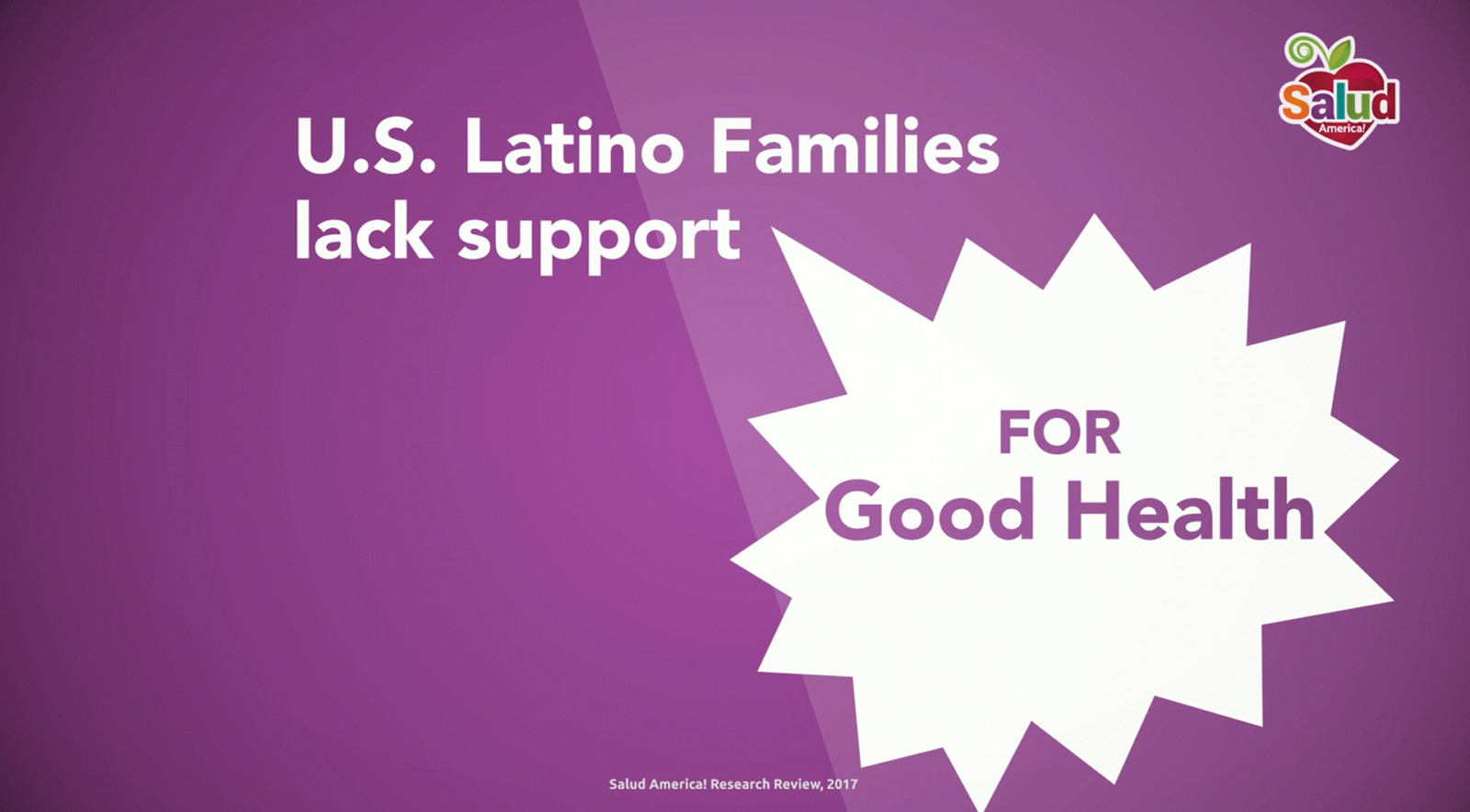 Fortunately, there is reason for hope.
Fortunately, there is reason for hope.
Research shows that providing whole-family programs and policies that benefit parents and children can create supportive environments for Latinos.
Leaders also can promote availability of and access to early care and education programs. They can enhance access to healthcare and services, and programs and policies to reduce time in poverty. They can turn schools into resource hubs to support Latino children and parents.
Read the News Release (PDF)
Read the Issue Brief (PDF)
Explore “Family Support” success stories and find tools to take action!
Contents
Introduction & Methods. This Salud America! research review is an assessment of available research regarding the current state of income, healthcare, early care and education, academic preparedness, and social support among Latino families. The review explores how to promote early education, limit Latinos’ time in poverty, and change the health culture from one of “sick care” to one about “well care.”
This Salud America! research review is an assessment of available research regarding the current state of income, healthcare, early care and education, academic preparedness, and social support among Latino families. The review explores how to promote early education, limit Latinos’ time in poverty, and change the health culture from one of “sick care” to one about “well care.”
Key Research Findings
Latinos’ big healthcare gaps.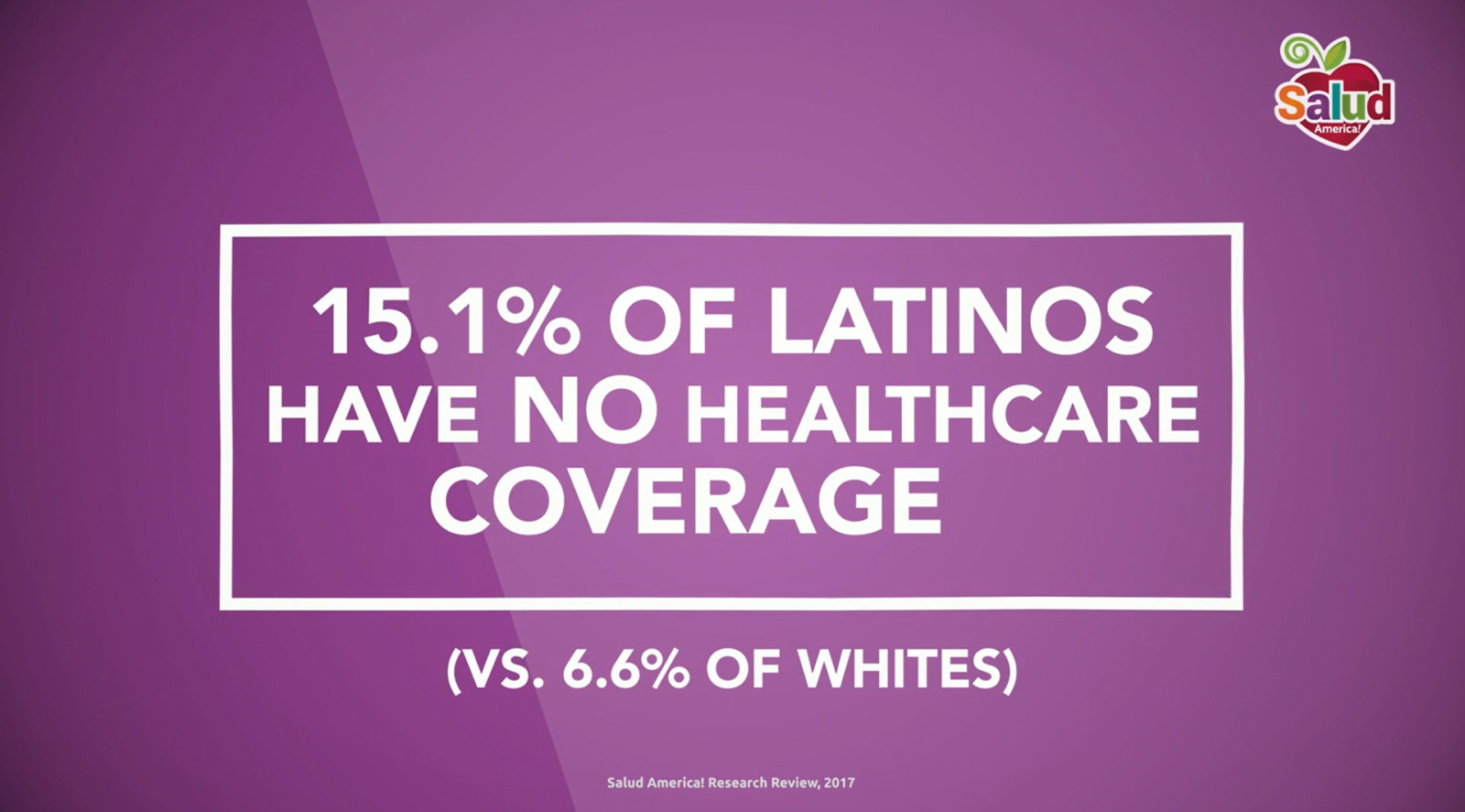 At least 27% of Latinos currently report having no usual health care provider. The percentage of Latinos with no health care coverage dropped from 26.2% to 15.1% from 2013 to 2016 under the Affordable Care Act (ACA); but it remains much higher than the percent drop among uninsured non-Latino whites from 14.1% to 6.6% in that same span.
At least 27% of Latinos currently report having no usual health care provider. The percentage of Latinos with no health care coverage dropped from 26.2% to 15.1% from 2013 to 2016 under the Affordable Care Act (ACA); but it remains much higher than the percent drop among uninsured non-Latino whites from 14.1% to 6.6% in that same span.
Early cognitive development. Latino children face a 15- to 25-percentage-point gap in early cognitive development than their white peers.
ECE programs.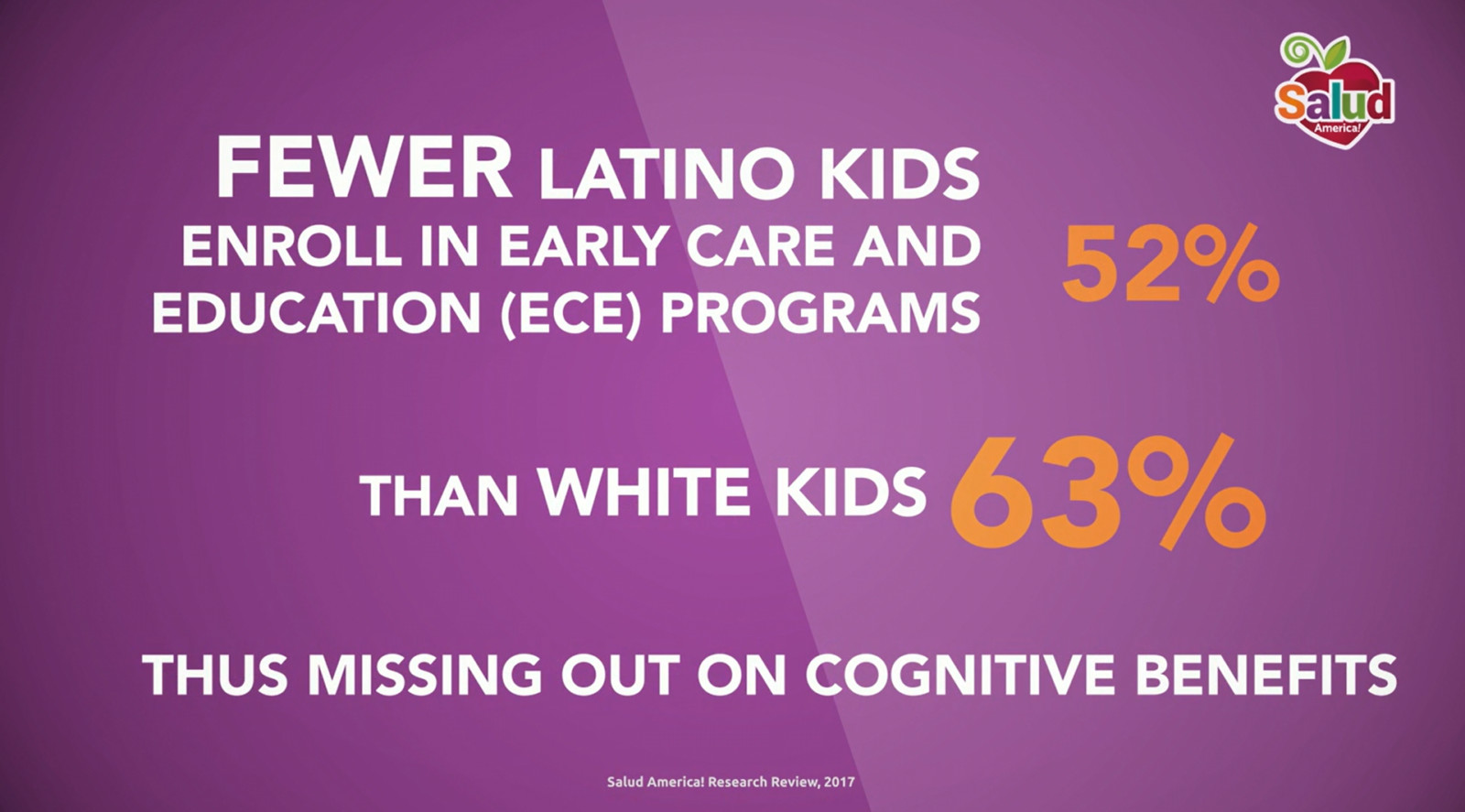 Latino kids who participate in early care and education centers match or exceed their peers in academic and social gains. Yet far fewer Latino children (52%) were enrolled in early care and education (ECE) centers than their white peers (63%).
Latino kids who participate in early care and education centers match or exceed their peers in academic and social gains. Yet far fewer Latino children (52%) were enrolled in early care and education (ECE) centers than their white peers (63%).
Disconnected Latino parents. Students fare better academically, socially, and financially with parents active in their schooling. Low-income Latino parents have historically scored lower in reading to children, helping with homework, and volunteering at school events.
Solution: Head Start centers as resource hubs.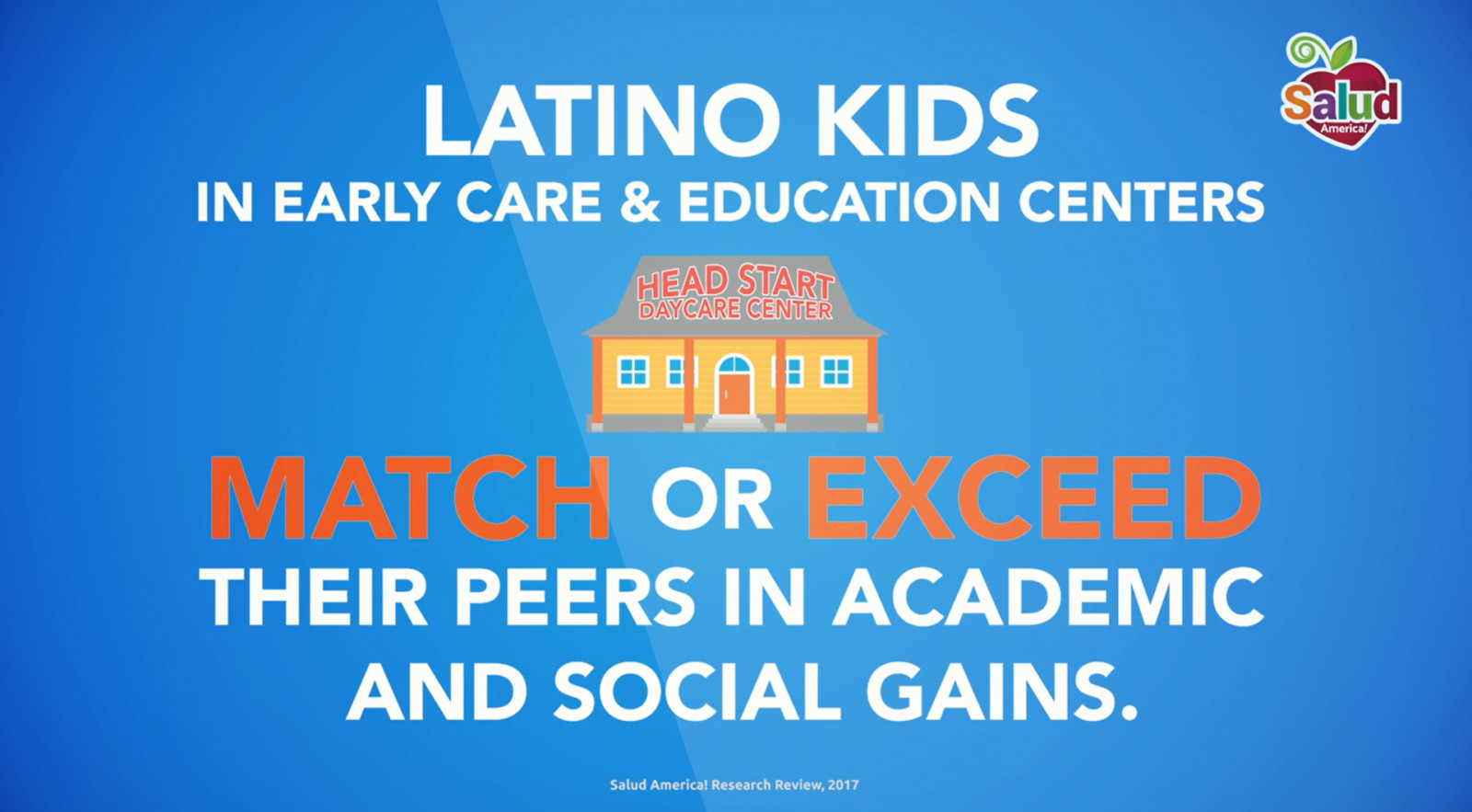 Some Head Start centers provided ECE and serve as resource hubs for medical, dental, and mental health care, as well as nutrition counseling and general family support.
Some Head Start centers provided ECE and serve as resource hubs for medical, dental, and mental health care, as well as nutrition counseling and general family support.
Solution: Promotores de salud. Promotores de salud are bilingual, bicultural community health advocates who support or directly link individuals to healthcare providers, services, education, or resources. In ECE centers and schools, programs have used promotores to help immigrant or Spanish-speaking parents engage in school events or access resources on-site.
Solution: Latino “medical homes.”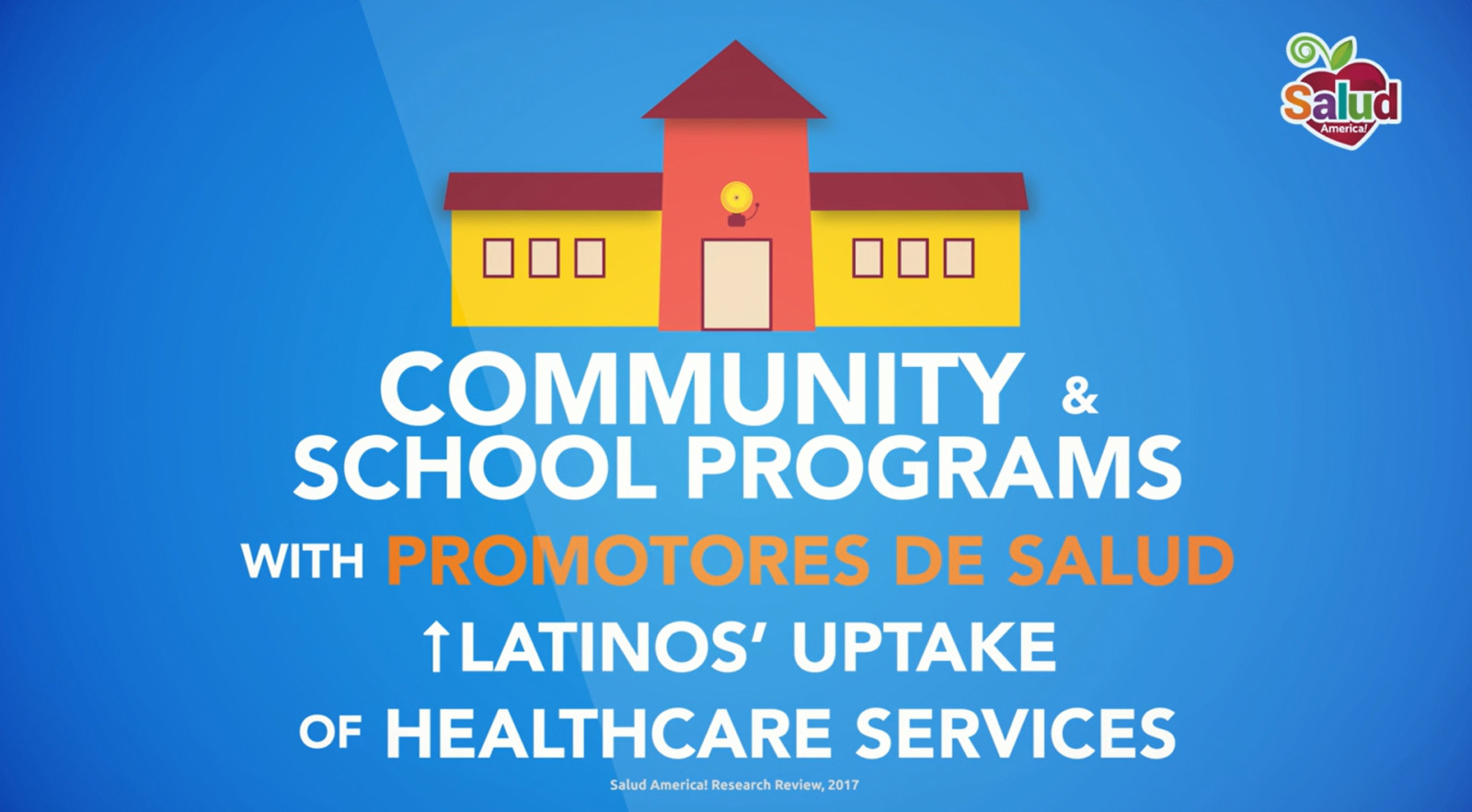 Create “medical homes” with promotores and home visits to enhance Latinos’ access to disparity-busting preventive care and physical, emotional, and behavioral wellness.
Create “medical homes” with promotores and home visits to enhance Latinos’ access to disparity-busting preventive care and physical, emotional, and behavioral wellness.
Solution: Latino “community schools.” A “community school” provides typical classroom instruction. But it also serves as community resource center with elements. These elements can include on-site childcare and ECE programs; school health navigators; a family wellness center; before- and after-school programs; educational support and preparation for higher education; and community meeting space. Community schools have shown the highest rates of academic achievement among low-income populations, along with high rates of physical and emotional wellness.
Conclusions
Policy implications.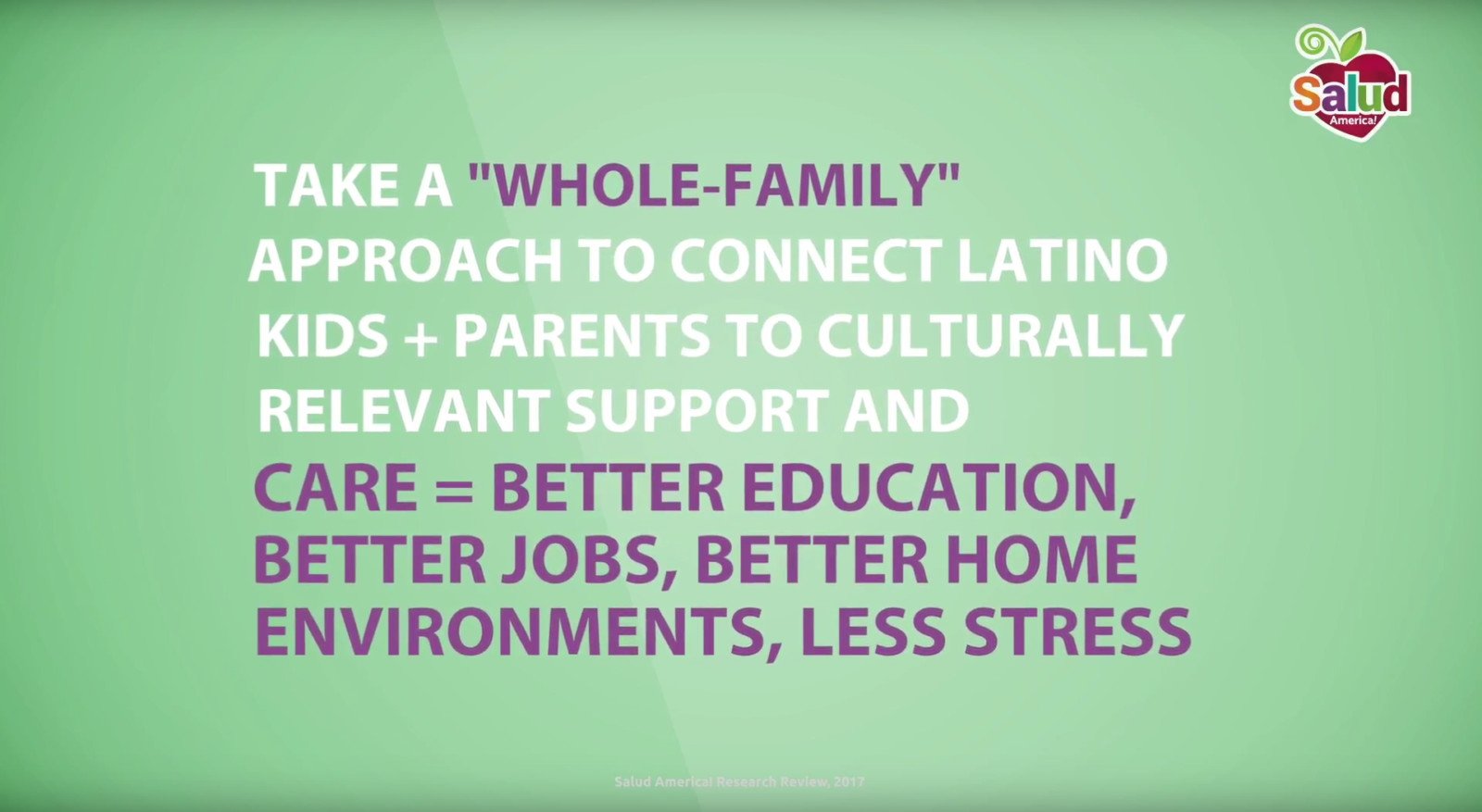 “Whole-family” approaches that connect Latino kids and parents to culturally relevant support can improve education, income, and home environments. Other emerging activities include: promoting availability, access to, and awareness of center-based early care and education among Latino families; pushing for programs and policies to limit Latinos’ time in poverty; developing “community schools”; and creating “medical homes” that tout comprehensive wellness and preventive care with tools like promotores de salud and home visits.
“Whole-family” approaches that connect Latino kids and parents to culturally relevant support can improve education, income, and home environments. Other emerging activities include: promoting availability, access to, and awareness of center-based early care and education among Latino families; pushing for programs and policies to limit Latinos’ time in poverty; developing “community schools”; and creating “medical homes” that tout comprehensive wellness and preventive care with tools like promotores de salud and home visits.
Future research needs. Future research should explore how to tailor support programs and policies for Latino subgroups across the country, as well as assessing community needs and building collaborations for contextual appropriateness. Other aspects of family support are emerging that warrant more study. For example, future studies should determine the accessibility and impact of entitlement or government assistance programs, such as tax credits and the Children’s Health Insurance Program (CHIP), on Latino families.
References
See the Full Research Review with references (PDF)
About the Authors
- Amelie G. Ramirez, Dr.P.H., Director, Salud America!, Professor, Institute for Health Promotion Research, UT Health San Antonio
- Kipling J. Gallion, M.A., Deputy Director, Salud America!, Assistant Professor, Institute for Health Promotion Research, UT Health San Antonio
- Rosalie Aguilar, M.S., Salud America!, Project Coordinator, Institute for Health Promotion Research, UT Health San Antonio
- Caroline Gamse, Ph.D., CG Medical Works, L.L.C.
This report is copyright 2017 RWJF, Route 1 and College Road, P.O. Box 2316, Princeton, NJ, 08543-2316, www.rwjf.org.
Explore More:
Healthy Families & SchoolsBy The Numbers
142
Percent
Expected rise in Latino cancer cases in coming years



